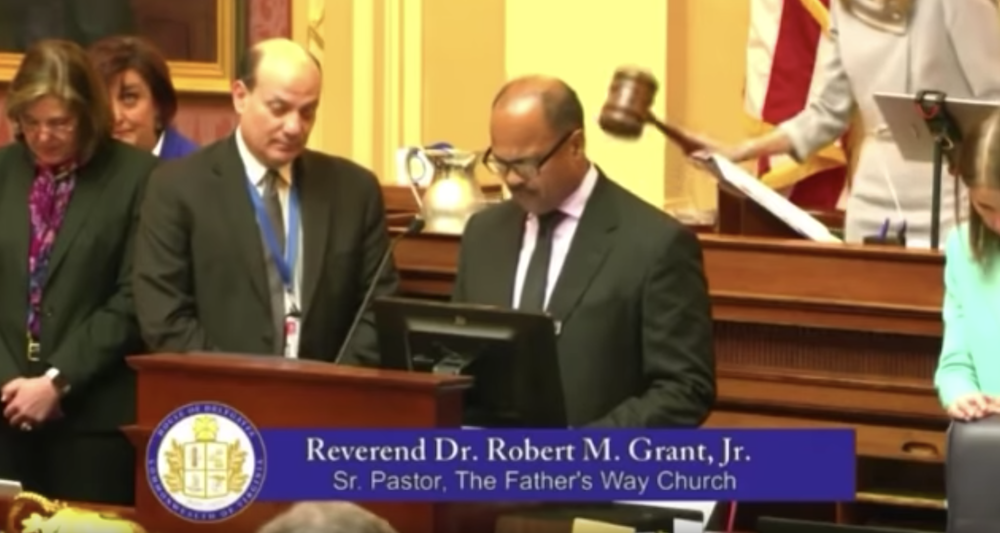
After a particularly fractious recent prayer session at the Virginia House of Delegates, the Freedom From Religion Foundation is urging the body to discontinue prayers altogether.
On Tuesday, Feb. 11, Robert Grant Jr., a pastor at the Father’s Way Church in Warrenton, Va., offered a six-minute-long prayer that condemned marriage equality and reproductive rights — and threatened legislators with the wrath of God.
“Why are there so many abortion clinics near African-American communities?” he asked. “This is planned urban genocide, and you can change this.”
When he went on to extol “traditional marriage,” the gavel dropped and delegates reciting the Pledge of Allegiance drowned out what was left of the prayer. Some members even walked out.
Virginia has always led the nation on religious liberty, FFRF points out.
“The First Amendment is based on the Virginia Statute for Religious Freedom,” FFRF Director of Strategic Response Andrew Seidel writes to Speaker Eileen Filler-Corn. “Washington, Jefferson, Madison and other Virginians established a secular government, in part to guarantee true religious freedom. They understood that there is no freedom of religion without a government that is free from religion. The prayers are unnecessary and, as Grant demonstrated, divisive.”
Grant said after the prayer, “I think that the Statehouse belongs to all the citizens.” FFRF agrees. The Statehouse belongs to all citizens — and a large and growing percentage of them are not religious. More than one-fourth of Americans have no religion, a recent survey shows. That makes the nonreligious, ironically, the largest religious demographic in the country.
Government prayer divides citizens along religious lines. The Virginia House saw this firsthand a couple of days ago, but it is not the only state to recently experience religious divisiveness. In the last few months, prayers have divided state legislatures in Arizona, Pennsylvania, Georgia, and elsewhere. One Pennsylvania legislator used her prayer to intimidate the first female Muslim legislator being sworn in, quickly splitting the state House along religious lines.
This is not the first time that even the Virginia House has been plagued by religious discord fomented by government prayer. Some months ago, invited preacher Randall Snipes asked in the Virginia House that those who reject Jesus be tortured in hell. He then claimed that the House needed “forgiveness for the millions and millions of innocent lives that have been murdered for the sake of convenience.”
Government prayer is divisive — and unnecessary, FFRF maintains. Nothing in the Constitution requires the House of Delegates to have prayers. The House will lose nothing if it stops praying. ( In fact, it would gain an estimated three hours every session.) Members and staff who still feel the need to pray will be able to do so privately. But those prayers will not be imposed on every citizen using the machinery and imprimatur of the state. This will show greater respect for the diversity of Virginia’s citizens and for the U.S. Constitution.
Government prayer doesn’t bring We the People together; it drives us apart. It’s time for the Virginia House of Delegates to end this archaic and divisive tradition, FFRF urges.
“Prayers in legislative bodies ensure acrimony and ill will,” says FFRF Co-President Annie Laurie Gaylor. “We need to unify in these times, not engage in further divisiveness.”
The Freedom From Religion Foundation is a national nonprofit with more than 30,000 members across the country, including over 700 in Virginia. FFRF protects the constitutional separation between state and church and educates about nontheism.

